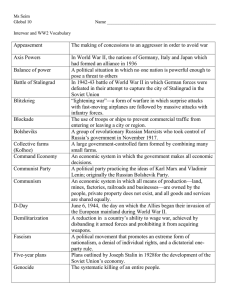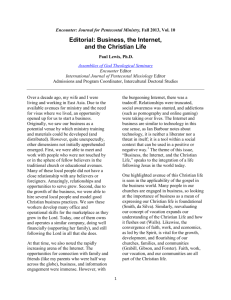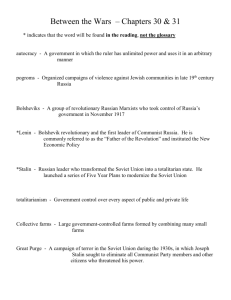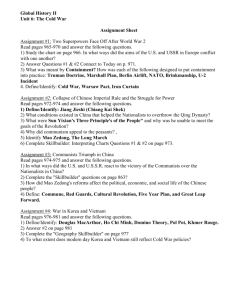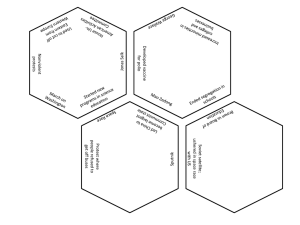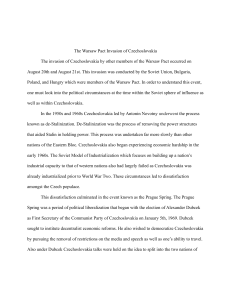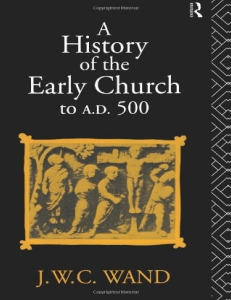A Homily for the 14 Sunday of Ordinary Time
advertisement
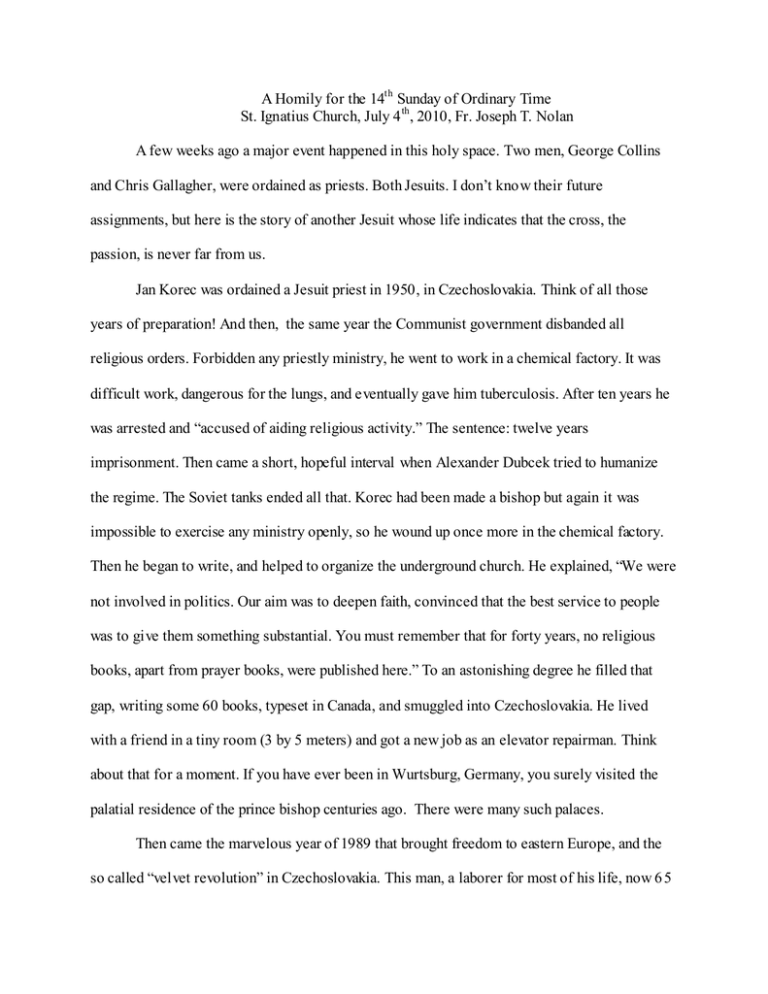
A Homily for the 14th Sunday of Ordinary Time St. Ignatius Church, July 4 th, 2010, Fr. Joseph T. Nolan A few weeks ago a major event happened in this holy space. Two men, George Collins and Chris Gallagher, were ordained as priests. Both Jesuits. I don’t know their future assignments, but here is the story of another Jesuit whose life indicates that the cross, the passion, is never far from us. Jan Korec was ordained a Jesuit priest in 1950, in Czechoslovakia. Think of all those years of preparation! And then, the same year the Communist government disbanded all religious orders. Forbidden any priestly ministry, he went to work in a chemical factory. It was difficult work, dangerous for the lungs, and eventually gave him tuberculosis. After ten years he was arrested and “accused of aiding religious activity.” The sentence: twelve years imprisonment. Then came a short, hopeful interval when Alexander Dubcek tried to humanize the regime. The Soviet tanks ended all that. Korec had been made a bishop but again it was impossible to exercise any ministry openly, so he wound up once more in the chemical factory. Then he began to write, and helped to organize the underground church. He explained, “We were not involved in politics. Our aim was to deepen faith, convinced that the best service to people was to give them something substantial. You must remember that for forty years, no religious books, apart from prayer books, were published here.” To an astonishing degree he filled that gap, writing some 60 books, typeset in Canada, and smuggled into Czechoslovakia. He lived with a friend in a tiny room (3 by 5 meters) and got a new job as an elevator repairman. Think about that for a moment. If you have ever been in Wurtsburg, Germany, you surely visited the palatial residence of the prince bishop centuries ago. There were many such palaces. Then came the marvelous year of 1989 that brought freedom to eastern Europe, and the so called “velvet revolution” in Czechoslovakia. This man, a laborer for most of his life, now 6 5 years of age, was again promoted by Rome to become bishop of Nitra, the oldest diocese of central Europe, where the first Christian church had been built in the 9th century. He says that his life has been like a novel. In 1950 we said that religious orders were forcibly disbanded. That involved 10,000 men and women. The total aggregate of the prison sentences they received was 42,000 years. We need to pause and think about statistics like that. In a free land like our own it is easy to be religious. It is bewildering and a cause for concern that so many are not. Being religious, we need to recall, involves more than bible reading and church-going, even though hearing God’s word and worshipping God is part of it. Hearing the cries for help and serving God’s people is the other part. One Orthodox Christian in the Soviet Union, before conditions were relaxed there, told an American visitor that Christians in both east and west had a common enemy; it was materialism. The church and believers were terribly persecuted in the eastern countries under Communist regimes, as we have just heard. But this Soviet Christian felt that our situation in the west was more difficult because with us, materialism is more of a lifestyle. It is harder to identify as hostile to the Christian faith and practice, to a life of community and simplicity enjoined on us by the gospels. Today we celebrate our birth as a nation, and part of it, when the Constitution emerged, is the declaration in the Bill of Rights that Congress shall make no law establishing an official religion, nor any law prohibiting the free exercise of religious belief. That doesn’t prevent clashes over some particular beliefs; such as the original Mormon practice of polygamy, which was finally forbidden by law. And arguments over how much the government can partner with churches in social causes. Or even, God help us, whether you can use the word “God” in public address. But in the main, we are free to worship, free to learn of Jesus and the gospels, free to be believers. And do-ers. The tragedy is that so many don’t.
